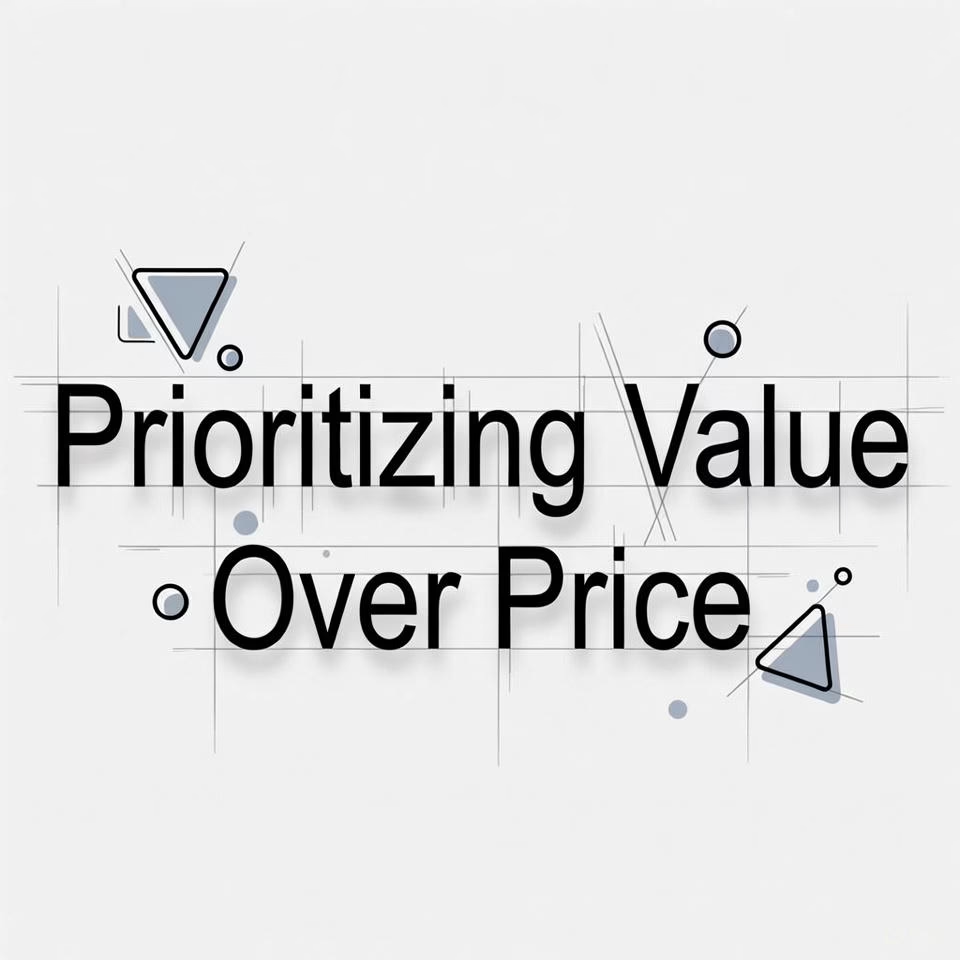In a world where discounts and flash sales dominate attention, it’s easy to mistake the lowest price for the best deal. But true financial wisdom—and long-term satisfaction—often lies in prioritizing value over price. Whether it’s a purchase, an investment, or a service decision, choosing value means considering what something brings to your life beyond the initial cost. It’s about looking past the numbers on the tag and focusing on the lasting quality, purpose, and impact. For those learning to manage finances more intentionally, understanding this concept can also prevent unnecessary debt and encourage smarter financial habits. If debt ever does become overwhelming, options like debt relief can help individuals regain balance while rethinking how they value money itself.
Why Value Matters More Than Cost
Price is immediate and obvious—it’s what you pay right now. Value, on the other hand, is deeper. It’s the benefit, utility, and satisfaction you gain from that expense over time. Something inexpensive that breaks quickly or fails to serve your needs isn’t truly a bargain. Likewise, a higher-priced item that lasts for years or saves you time and stress may actually be the better investment.
Prioritizing value over price encourages people to shift from short-term thinking to long-term perspective. It teaches financial patience, reduces waste, and ultimately leads to more intentional consumption. It’s not just about spending less, but spending better.
The Hidden Cost of “Cheap” Decisions
Choosing the cheapest option often feels like the responsible thing to do—but it can lead to more expenses later. Low-quality products may need frequent replacements, poor financial services can come with hidden fees, and quick-fix solutions rarely solve underlying problems.
This “cheap now, costly later” pattern is one of the biggest traps in personal finance. For example, buying discount appliances that fail after a year or skipping professional advice to save on fees can result in even greater costs over time. The emotional toll of constant replacements or regretful spending is another invisible expense that rarely shows up on a receipt but weighs heavily on peace of mind.
Understanding Value in Everyday Choices
Value doesn’t always mean expensive. It means aligning purchases with priorities and goals. For instance, spending more on a durable pair of shoes that support your feet daily holds more value than buying several cheap pairs that wear out quickly.
Similarly, prioritizing experiences—like travel or education—can bring lasting fulfillment that a low-cost but fleeting purchase might not. The key is to consider how something contributes to your well-being, growth, or efficiency. Ask questions like:
- Will this make my life easier or more meaningful?
- Is it built to last or designed to be replaced?
- Does it support my long-term goals?
These questions anchor decisions in purpose, not impulse.
Investing in Quality for Long-Term Gain
High-quality items, services, and experiences often come with higher upfront costs, but they pay off in reliability and satisfaction. Whether it’s a well-made appliance, a trusted financial advisor, or a continuing education course, investing in quality builds confidence and reduces future stress.
This mindset also extends to self-investment. Spending money on things that improve your health, skills, or knowledge—like wellness programs or professional development—is one of the best ways to create value that multiplies over time. The Federal Trade Commission emphasizes that informed decision-making protects consumers from scams and short-term deals that look appealing but deliver little real value.
Applying Value-Based Thinking to Finances
When managing money, the principle of value can transform your relationship with spending and saving. Instead of cutting costs everywhere, focus on optimizing outcomes. That might mean paying slightly more for ethical, sustainable brands whose products last longer, or choosing a financial product with better long-term security rather than a lower introductory rate.
Applying value thinking also involves understanding your emotional connection to spending. Many people overspend on short-lived gratification instead of long-term satisfaction. Mindful budgeting—allocating funds for meaningful goals rather than fleeting wants—helps you make choices that feel rewarding rather than impulsive.
Value as a Path to Financial Stability
When people consistently focus on value, they tend to make fewer financial mistakes. They buy less, waste less, and feel more satisfied with what they have. This mindset naturally promotes savings and reduces the temptation to rely on credit for quick gratification.
It also builds resilience. When your purchases and investments are chosen thoughtfully, you’re less likely to face financial regret or unmanageable debt.
The Role of Ethics and Sustainability in Value
Modern consumers increasingly recognize that value isn’t just personal—it’s ethical. Supporting companies that prioritize fair labor, environmental responsibility, or community impact contributes to a broader sense of worth. Spending becomes a statement of values, not just a transaction.
For instance, choosing to buy from a brand that produces sustainable products or gives back to the community can create a ripple effect of positive change. According to the Harvard Business Review, companies that focus on long-term value creation tend to outperform those that chase short-term profit, proving that ethics and economics often go hand in hand.
Balancing Frugality With Value
Frugality is a valuable financial trait—but taken too far, it can lead to missed opportunities. Being overly focused on saving every penny may prevent you from investing in something that brings genuine improvement to your life. The balance lies in being thoughtful, not restrictive.
For example, you might opt for a moderately priced product that offers reliability instead of the cheapest or the most luxurious option. It’s about being strategic—spending where it matters most and cutting back where it doesn’t. That approach not only preserves your financial health but also enhances your overall quality of life.
Final Thoughts
Prioritizing value over price reshapes how we view money. It teaches us to think long-term, make mindful choices, and align spending with our values and goals. By focusing on what truly matters—quality, purpose, and sustainability—we move from reactionary financial habits to intentional living.
Ultimately, value-based decisions protect not just your wallet but your peace of mind. When you stop chasing the cheapest deal and start seeking genuine worth, you gain something far more valuable: control, confidence, and lasting satisfaction.






